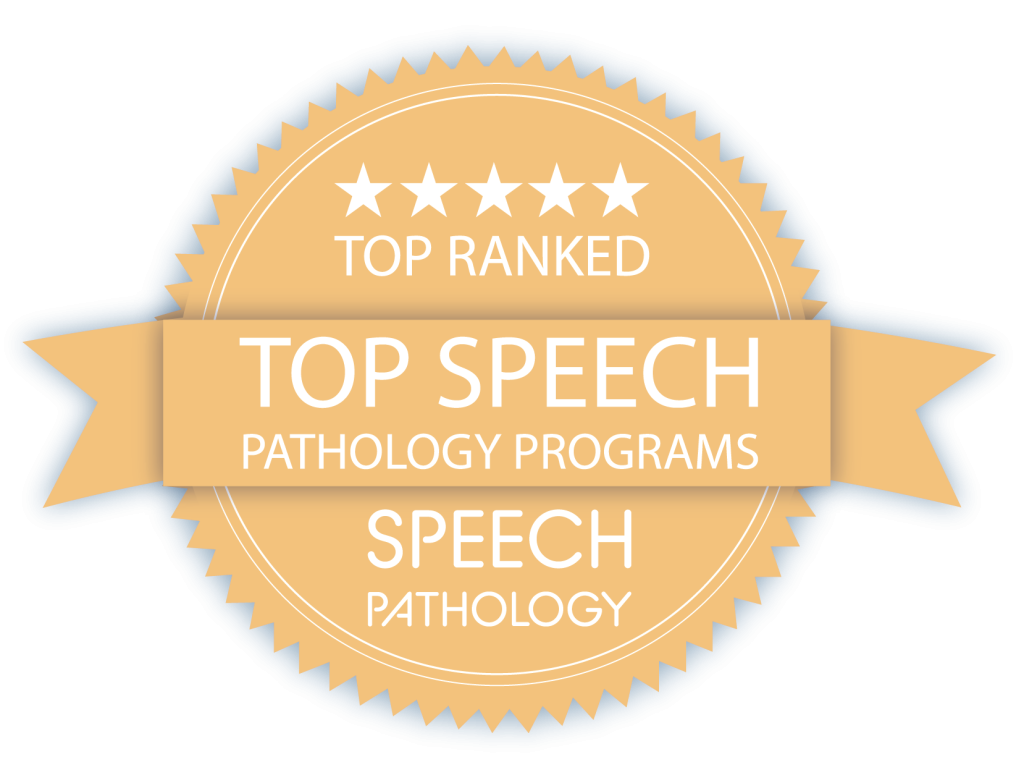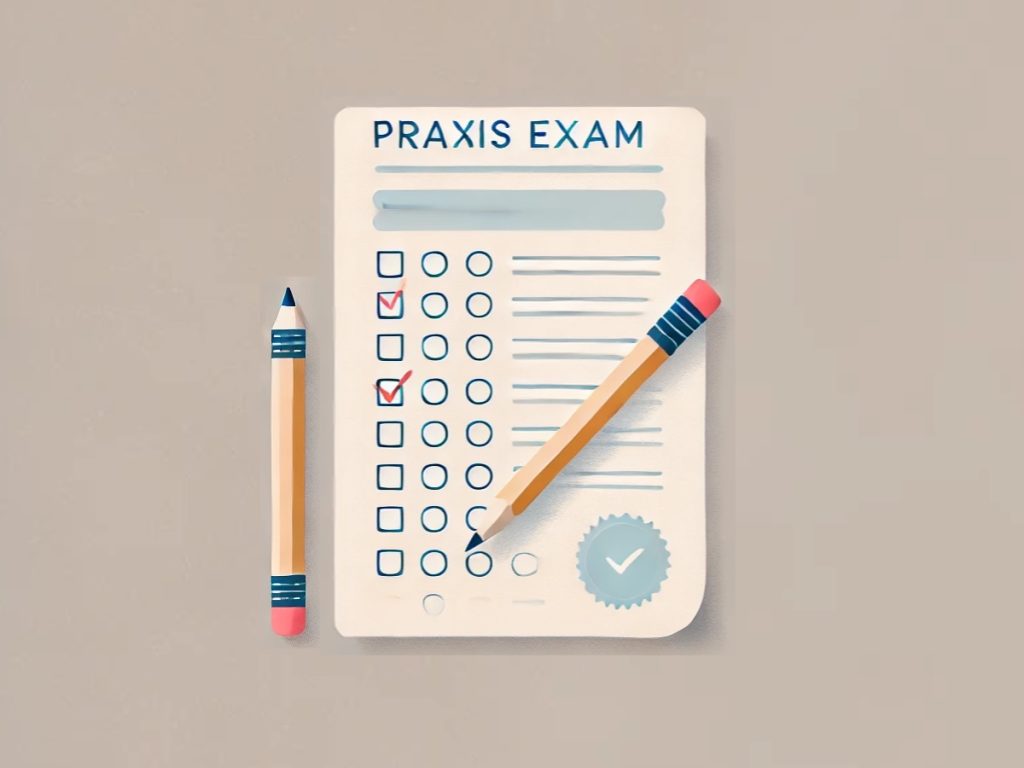Last Updated
April 14, 2025Written By
Elizabeth Monroe, M.S., CCC‑SLPThere are many Speech Pathology programs available in Florida, from Bachelor’s in Communication Sciences and Disorders to Master’s, Ph.D., and even a clinical doctorate in Speech-Language Pathology. Some of the best public schools to attend are University of Florida, University of South Florida and Florida State University which offer cheap yet quality programs. For those who need flexibility, some of the universities, including NSU and FSU, offer online speech pathology programs or part time classes that can help you balance between study and work. Florida’s programs often have an accelerated SLP path which means that you can get your degree faster without having to sacrifice quality.
Florida is also great because of the high focus on bilingual and multicultural training, particularly in schools based in cities like Miami. This is important in order to prepare for the needs of local populations and will help to make you more valuable to your future employers. When you graduate from a Florida university, you will have fulfilled the state’s licensure requirements which include clinical supervision, clinical fellowship, the Praxis exam. All in all, if you are looking for quality, flexibility, and cultural experience, Florida is an ideal place to get your SLP education.

Looking for the best SLP programs in Florida? peechpathology.org ranks top speech-language pathology degrees to help you choose the best one for you. Our list highlights programs known for quality, research, and clinical training. We focus on what matters to students and professionals in Florida. Learn how we rank schools at speechpathology.org/rankings-methology.

Tallahassee, FL - Public 4-Year - fsu.edu
Campus Based - Visit Website
Florida State University's undergraduate Communication Science and Disorders program offers a 42-credit curriculum meeting ASHA standards, covering anatomy, language development, and clinical strategies to prepare for graduate studies in speech-language pathology or audiology. With 18% projected job growth, it includes clinical observation and science prerequisites, equipping students for diverse careers in hospitals, schools, and private practices. As a bachelor's program, it requires ACT or SAT entrance exams for admission, supporting its role in foundational education.
Online & Campus Based - Visit Website
Florida State University's hybrid Master of Science in Communication Science and Disorders tackles the speech-language pathologist shortage through part-time study combining online coursework with hands-on clinical practicums at Florida sites. This 61-credit program develops diagnostic and treatment skills for communication disorders, preparing graduates for roles in schools, hospitals, and private practices. As a master's program, it requires an entrance exam—specifically GRE scores—for admission, aligning with its national accreditation and focus on professional readiness.
Campus Based - Visit Website
The campus-based Ph.D. in Communication Science & Disorders at Florida State University trains leaders for research, teaching, and clinical careers, emphasizing applied clinical research in areas like developmental disabilities and neurologically-based disorders. Students engage in individualized study with close faculty collaboration in Tallahassee, building expertise through research methods and specialization courses. Admission demands a master's degree, a 3.0 GPA, and GRE scores, positioning graduates for academic and leadership roles in the field.
Campus Based - Visit Website
Focusing on Developmental Disabilities, this Ph.D. program at Florida State University provides specialized training in applied clinical research for autism spectrum disorders, school-age language, and early intervention. It prepares scholars for leadership in academia and clinical settings through an individualized curriculum that emphasizes advanced research skills. Admission requires a master's degree, a 3.0 GPA, and GRE scores are recommended, with a priority funding deadline of January 1st for aspiring researchers.
Campus Based - Visit Website
Specializing in Neurologically-based Communication and Cognitive Disorders, Florida State University's Ph.D. program emphasizes applied clinical research and faculty mentorship to prepare students for academia and research leadership. It requires a master's degree, a 3.0 GPA, and GRE scores for admission, offering teaching and research experience in an individualized, campus-based setting. Graduates are equipped to address complex communication challenges and pursue impactful careers in the field.
Gainesville, FL - Public 4-Year - ufl.edu
Campus Based - Visit Website
The University of Florida's Master of Arts in Communication Sciences and Disorders is a rigorous 5-semester campus program that prepares students for speech-language pathology careers through comprehensive academic and clinical training. With a 98.9% completion rate and perfect 100% first-attempt Praxis pass rate, graduates achieve 97.7% employment success. The program emphasizes evidence-based interventions for communication and swallowing disorders, offering extensive clinical practicum opportunities under faculty mentorship in small class settings of 25-30 students. This master's program requires the Praxis entrance exam for certification.
Campus Based - Visit Website
University of Florida's Ph.D. in Rehabilitation Science with a Communication and Swallowing Sciences and Disorders concentration is an interdisciplinary, research-focused doctoral program. It trains students to become expert researchers in communication disorders through cutting-edge scientific exploration of speech, language, and swallowing challenges. The curriculum emphasizes advanced research methodologies, hands-on experiences, and collaboration with faculty, preparing graduates for academic or clinical research careers. This doctorate program requires an entrance exam, typically the GRE.
Campus Based - Visit Website
The Doctor of Philosophy in Rehabilitation Science at the University of Florida, concentrating on Communication and Swallowing Sciences and Disorders, offers an interdisciplinary path for aspiring researchers. Students develop advanced skills in teaching, research, and leadership, with comprehensive training in research methods, statistics, and specialized coursework focused on communication and swallowing disorders. Graduates are prepared for impactful roles in academia, clinical research, and healthcare innovation. This Ph.D. program requires an entrance exam, such as the GRE.
Fort Lauderdale, FL - Private 4-year - nova.edu
Campus Based - Visit Website
Nova Southeastern University's Bachelor of Science in Speech-Language and Communication Disorders is an on-campus program providing foundational training for careers as speech-language pathology assistants or advanced study. Students engage in hands-on clinical experiences at the on-site clinic and learn from expert faculty about communication disorders across populations. With 25% job growth projected through 2029 and competitive salaries around $79,120, this degree offers a pathway to impactful healthcare roles. Entrance exam requirements are not specified.
Online & Campus Based - Visit Website
Nova Southeastern University's Master of Science in Speech-Language Pathology is a CAA-accredited hybrid program requiring no GRE. Spanning 54 credits over 8-12 terms, it combines online coursework with residential components and offers multiple start dates. Students complete 400 supervised clinical hours across pediatric, school, and medical settings, achieving a 97% on-time completion rate and strong Praxis pass rates. This program prepares graduates for diverse roles in speech-language pathology, with alumni tuition discounts available.
Tampa, FL - Public 4-Year - usf.edu
Campus Based - Visit Website
The University of South Florida's Master of Science in Speech Language Pathology is a rigorous 6-semester campus program that prepares students for ASHA certification through comprehensive coursework and diverse clinical experiences. Students gain hands-on training across hospitals, schools, and rehabilitation clinics in Tampa Bay, with mandatory neuroanatomy courses and a 3.2+ GPA requirement. This full-time program offers residential and Suncoast tracks, requiring prerequisite courses but no entrance exam, and is military-friendly.
Campus Based - Visit Website
University of South Florida's Master of Science in Speech Language and Hearing Sciences features a 6-semester residential track focused on extensive clinical practicum in diverse Tampa Bay settings, including hospitals and schools. With a 3.2 GPA requirement and prerequisite coursework, the program prepares graduates for state licensure and ASHA certification without an entrance exam. It emphasizes full-time, campus-based learning and is military-friendly, offering rich training opportunities for aspiring speech-language pathologists.
Jacksonville, FL - Private 4-year - ju.edu
Online & Campus Based - Visit Website
Jacksonville University's Master of Science in Speech-Language Pathology offers a hybrid format with full-time in-person (5 semesters) or part-time online (8 semesters) options. The 60-credit curriculum, accredited by ASHA, includes synchronous online classes and cohort-based learning. Clinical placements provide hands-on experience, leading to a 99% employment rate and median salary of $89,290. The program requires applications via CSDCAS with three recommendation letters and optional GRE scores; TOEFL is required for international students. Applications for 2025 are open until February 1, 2025.
Online Learning - Visit Website
Jacksonville University's online Master of Science in Speech-Language Pathology features flexible full-time or part-time tracks, with synchronous classes and a 60-credit curriculum. Accredited by ASHA, the program emphasizes assessment, diagnosis, and treatment of communication disorders through clinical placements in the final semesters. Graduates benefit from a 99% employment rate and median salary of $89,290. Applications for 2025 are submitted through CSDCAS, with optional GRE scores and a deadline of February 1, 2025.
Miami, FL - Public 4-Year - fiu.edu
Campus Based - Visit Website
Florida International University's Master of Science in Speech-Language Pathology with a Cultural and Linguistic Diversity (CLD) concentration is a 6-semester, 61-credit bilingual program that prepares students to diagnose and treat communication disorders in diverse populations. Through four semesters of clinical rotations, students gain hands-on experience in various healthcare settings, positioning them for high-demand careers. The program requires the Praxis Examination for degree completion and admits 50 students annually, with applications due January 22 via CSDCAS.
Campus Based - Visit Website
Florida International University's Master of Science in Speech-Language Pathology offers a comprehensive 6-semester, 61-credit program designed to equip students with skills to diagnose and treat communication disorders across all age groups. Featuring a bilingual curriculum and extensive clinical rotations in schools, hospitals, and rehabilitation centers, the program emphasizes hands-on learning and professional development. It requires the Praxis Examination for degree completion, admits 50 students annually, and has a January 22 application deadline, preparing graduates for success in high-demand healthcare roles.
Orlando, FL - Public 4-Year - ucf.edu
Campus Based - Visit Website
The University of Central Florida's Master of Arts in Communication Sciences and Disorders is a campus-based, two-year full-time program that prepares students for ASHA certification through 72 credit hours. It emphasizes clinical skills development with hands-on experience at over 200 practicum sites, leading to high employment rates and a 100% Praxis exam pass rate. The program does not require the GRE for admission, and it offers multiple admission tracks with an average GPA of 3.6-3.8 for admitted students. No entrance exam is required, as explicitly stated.
Boca Raton, FL - Public 4-Year - fau.edu
Campus Based - Visit Website
Florida Atlantic University's Master's in Speech-Language Pathology program provides comprehensive training in communication disorders, preparing students for ASHA certification and professional practice. The campus-based program in Boca Raton includes extensive clinical practicum experiences across multiple settings, offering hands-on work with both children and adults. This rigorous curriculum meets Florida state requirements and emphasizes diverse clinical training to develop essential skills for addressing speech and language challenges. Graduates are well-prepared for professional examinations and careers in healthcare and educational environments. The program requires an entrance exam for admission.
Miami, FL - Private 4-year - albizu.edu
Online & Campus Based - Visit Website
Albizu University-Miami's Master of Science in Speech-Language Pathology is a comprehensive two-year hybrid program requiring 60 credits and a 3.0 minimum GPA for admission. Notably, no GRE scores are required, though an interview is mandatory. The ASHA-accredited curriculum blends residential and online formats, providing extensive clinical practica in assessment, intervention, and evidence-based practices. Graduates are prepared to diagnose and treat speech, language, and swallowing disorders across diverse settings, including schools, hospitals, and private practices, ensuring readiness for licensure and varied career opportunities.
Tampa, FL - Private 4-year - ut.edu
Campus Based - Visit Website
The University of Tampa's Master of Science in Speech-Language Pathology, offered through a partnership with Gannon University, is a two-year campus program that prepares students for diverse clinical settings. This comprehensive curriculum emphasizes evidence-based practices, multicultural competence, and ethical standards, supported by 25 clinical observation hours and 18 communication sciences credits. Graduates gain advanced skills in diagnosing and treating communication disorders, with preparation for national certification. Admission requires a bachelor's in Allied Health, a minimum 3.0 GPA, and specific prerequisites. The program requires an entrance exam for master's level admission.
The choice between a bachelor’s in Speech-Language Pathology and master’s degree in Florida depends on your career objectives as well as your preferred start date for professional work. A bachelor’s degree in Communication Sciences and Disorders is a good starting point. The typical requirements for this degree include a high school diploma along with good academic performance and possibly several prerequisite classes. This degree can lead to work as a speech-language pathology assistant, teaching aide or early intervention specialist. Those who choose these roles are perfect for educational or clinical work situations where you can pay less in tuition yet dedicate less time to your studies. Earnings for these positions remain relatively low when compared with those of licensed speech-language pathologists.
A master’s degree in speech pathology is required for anyone who wants to obtain licensure as a speech-language pathologist. Master’s program admissions generally require you to present a good undergraduate GPA while requiring letters of recommendation and occasionally GRE scores or extra courses in phonetics or anatomy. Public universities in Florida provide more reasonably priced in-state tuition rates despite the fact that private institutions tend to charge higher fees. Master’s graduates obtain greater flexibility regarding their clinical and private practice choices and achieve better salary ranges. If you need a quick professional start then a bachelor’s is a good choice but for more duties and better compensation you should aim for a master’s.
The PhD and SLPD are the two primary SLP doctorate degrees that people seek in speech-language pathology. The PhD is really for those planning on teaching at a university or doing research because it is a research oriented degree. Admission to a PhD program usually requires a master’s degree, good GPA, reference letters, and sometimes GRE scores. This particular track can take anywhere from three to five years to finish and leads to the careers of research scientists, university professors, clinical researchers and the like.
The SLPD is a clinical doctorate for experienced clinicians who want to build on their expertise and leadership skills, while the PhD is for those who want to be academics or university teachers. The SLPD admissions usually require a master’s degree in speech pathology, as well as several years of professional experience and strong recommendations. Some universities such as Nova Southeastern University offer the SLPD in a hybrid model, which means that students can pursue the degree while working and it can be completed within two to three years.
Even though both programs are quite expensive, the SLPD may provide more choices for the payment and the possibility to study part-time. Career earnings also vary; PhD graduates will have higher salaries in academic and research institutions while SLPD holders will have a higher salary in clinical leadership and management. Both degrees are a way of obtaining a higher level of expertise but in different areas.
All practicing Speech pathologists in Florida must become licensed through the Florida Board of Speech-Language Pathology & Audiology. First, you must hold a master’s degree or higher in SLP from a program accredited by ASHA’s Council on Academic Accreditation. Your graduate program must provide a minimum of 300 hours of supervised clinical practice and no less than 200 of those hours must be dedicated to speech pathology clinical experience. After graduation, you will be required to undertake a professional experience program called clinical fellowship. The clinical fellowship is delivered full time over nine months or part time over 18 months and provides an essential development opportunity for independent clinical skills.
After you have completed your clinical fellowship you need to pass the Praxis examination in Speech-Language Pathology. This last examination is a competency based one and is required both for state licensure and national certification purposes. After all the requirements are met with the submission of application and fee and pass the background check you will be issued your license. These requirements ensure that you are best equipped to offer quality care. The accredited education followed by supervised clinical experience and rigorous testing in Florida ensures that licensed professionals are ready to work with a diverse population as a structured path.
Through various options in Florida, you can quickly work toward becoming a speech-language pathologist. Most institutions organize their courses to suit your needs which enable you to graduate early. Accelerated SLP master’s programs let you obtain your degree in approximately 20 months as opposed to standard 24 months. The University of St. Augustine for Health Sciences delivers intensive learning through online classroom materials along with on-campus clinical practice. Those seeking a rapid entry into their profession but maintaining high standards might find this option particularly appealing.
Several Florida universities offer quick pathways to a Communication Sciences and Disorders bachelor’s degree on the undergraduate level. Students who use 2+2 transfer agreements with community colleges to finish their degree more quickly and at a lower cost. Certain institutions provide the opportunity to pursue combined speech pathology bachelor’s and master’s degrees. Graduates of undergraduate studies can transition directly into advanced courses at increased efficiency and with reduced professional disruption.
| School Name | Highlights | Retention & Grad Rates |
|---|---|---|
University of Florida
|
|
|
| Florida International University |
|
|
| University of Central Florida |
|
|
There are several options for covering the cost in Florida for those wishing to pursue a career in Speech-Language Pathology. The best value is usually provided by public universities, particularly for residents. The University of Florida, the University of Central Florida, and Florida International University are some of the Florida schools that offer a bachelor’s degree in Communication Sciences and Disorders at a relatively low tuition of $8,000 to $12,000 per year. Students also save money in other ways, such as by starting at a community college and then transferring to a 4 year school.
Among the public institutions, FIU, FSU, UCF, and USF are some of the cheapest for seeking a master’s in SLP. For example, the master’s program at FIU comes in at a relatively low cost for in-state students at about $43,700, much cheaper than the private schools that can cost $60,000 or more.
The PhD or the SLPD, which have a higher overall tuition due to the longer study time, often provide research or assistantship opportunities to help offset the costs at speech pathology doctoral programs. So long as you are trying to keep your expenses down, you will find that in-state public programs are a great way to get a quality education at a relatively affordable price at both the undergraduate and master’s levels.
| School Name | Highlights | Annual Estimated Tuition & Fees |
|---|---|---|
| Florida Atlantic University |
|
|
| Nova Southeastern University |
|
|
| University of Central Florida |
|
|

If you are interested in pursuing a career in SLP and have been researching licensing requirements or are simply interested in learning more about SLP

If you are pursuing the position of a speech-language pathologist, then you may have heard of the Praxis exam from your professors, classmates, or even

Dyslexia, a common learning difference affecting reading, writing, and language processing, can present unique challenges for students transitioning from high school to college. Fortunately, a

If you have ever been researching speech-language pathology careers and come across the words ‘speech pathologist’ and ‘speech therapist’, you might wonder if they are